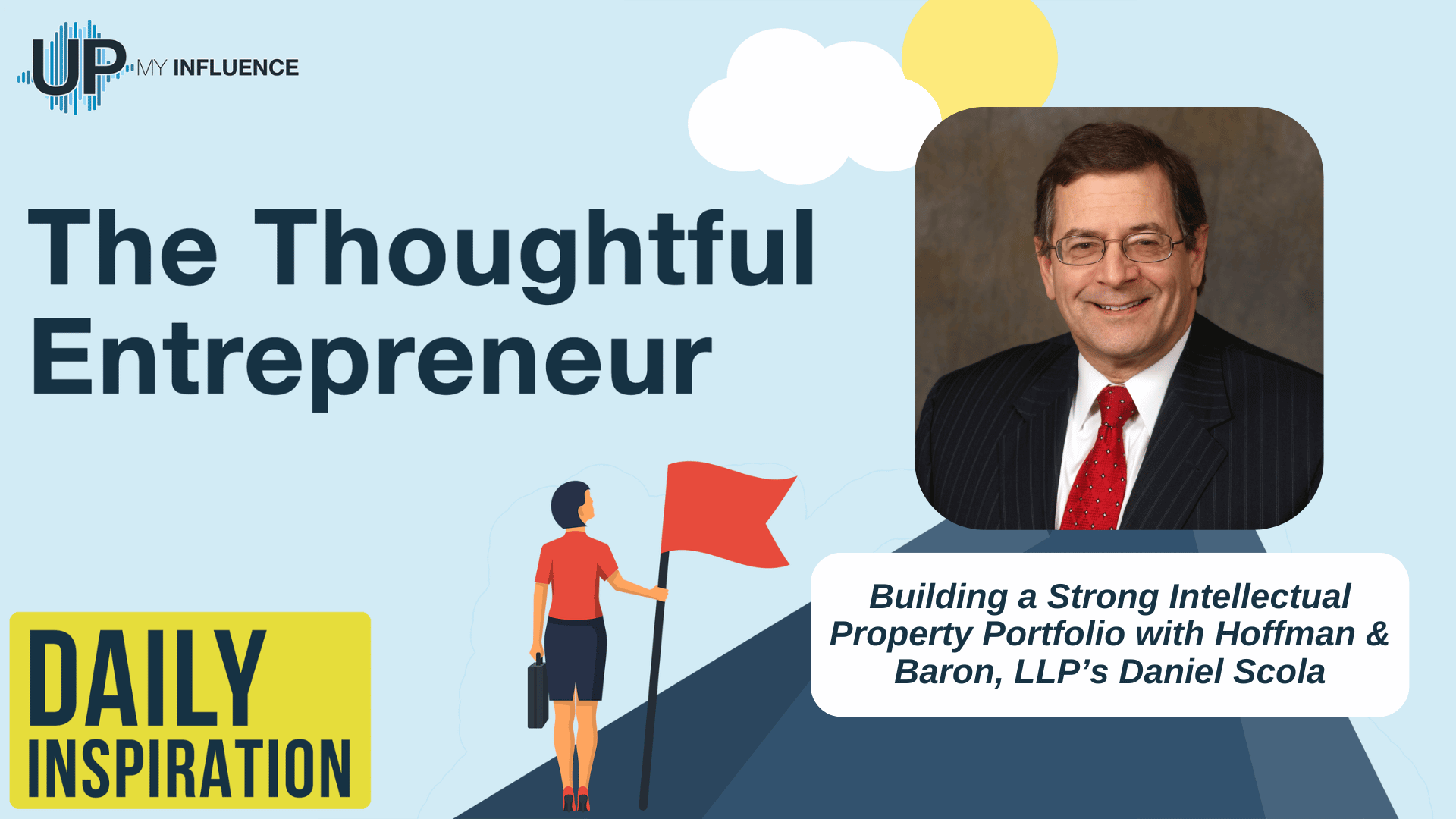THE THOUGHTFUL ENTREPRENEUR PODCAST
 The Critical Importance of Intellectual Property Protection for Businesses and Innovators
The Critical Importance of Intellectual Property Protection for Businesses and Innovators
In a recent episode of “The Thoughtful Entrepreneur,” host Josh engages in a compelling discussion with Daniel Scola, the managing partner of Hoffman & Baron LLP, a law firm specializing in intellectual property (IP) protection. The conversation centers around the critical importance of safeguarding intellectual property for businesses and innovators. This blog post will break down the key insights and actionable advice shared during the episode, providing a comprehensive guide for listeners and readers alike.
Josh opens the episode by inviting listeners who are seeking connections with partners, investors, influencers, and clients to explore his services. He shares his extensive experience, having had private conversations with over 2,000 leaders to understand where their best business opportunities arise. Josh offers a free video resource that outlines steps to achieve 100% inbound marketing in one’s industry over the next six to eight months, emphasizing a spam-free, ad-free, and sales-free approach. He encourages listeners to visit his website, Up My Influence, to access this valuable content. After the introduction, Josh welcomes Daniel Scola to the podcast. Daniel is introduced as the managing partner of Hoffman and Baron LLP, and listeners are directed to the firm’s website for more information. Daniel expresses his gratitude for the opportunity to join the conversation.
Daniel explains that his firm focuses on protecting clients' ideas through various forms of IP, including patents, trademarks, and copyrights. He emphasizes that ideas are foundational to society and business, serving as the driving force behind innovation and economic growth. Daniel highlights that many businesses overlook the significance of IP, which can create competitive advantages and barriers to entry in the market. He shares success stories, such as a group of doctors who developed a groundbreaking medical device for treating atrial fibrillation (AFib) and secured hundreds of patents, ultimately selling their IP to a major company for over $250 million. Daniel also outlines the key steps in securing a patent and stresses the importance of confidentiality agreements when discussing ideas with potential partners or investors.
About Daniel Scola:
Daniel Scola is a seasoned intellectual property professional with particular expertise in developing, procuring, and defending IP estates across patents, trademarks, and copyrights. He has extensive experience representing clients before courts and various Patent Offices worldwide. Daniel specializes in post-grant proceedings, including Inter Partes Review (IPR), Derivation, and Post Grant Review (PGR) cases.
His practice encompasses a wide range of opinion work, including freedom-to-operate assessments, patentability evaluations, validity determinations, and non-infringement analyses. Daniel also conducts thorough IP due diligence investigations and negotiates technology agreements, IP licensing agreements, and entertainment contracts. With in-depth knowledge of foreign patent and trademark oppositions, he has a proven track record in EPO Oppositions and Appeals, positioning him as a valuable asset in the field of intellectual property law.
About Hoffman & Baron, LLP:
A full-service law practice specializing in all areas of intellectual property, both domestically and internationally. They prioritize quality without compromise, providing a cost-effective approach to achieve the most favorable outcomes for their clients. Guided by principles of commercial success, efficiency, and discipline, they navigate the complexities of IP law.
Founded in 1984 by co-founders and partners Charles R. Hoffmann and Ronald J. Baron, the firm has established offices in New York, New Jersey, and Washington D.C. It serves clients globally across various scientific and engineering fields.
Apply to be a Guest on The Thoughtful Entrepreneur: https://go.upmyinfluence.com/podcast-guest
Links Mentioned in this Episode:
Want to learn more? Check out Hoffman & Baron, LLP website at
Check out Hoffman & Baron, LLP on LinkedIn at
https://www.linkedin.com/company/hbiplaw/
Check out Daniel Scola on LinkedIn at
https://www.linkedin.com/in/danielscola/
Don’t forget to subscribe to The Thoughtful Entrepreneur and thank you for listening. Tune in next time!
More from UpMyInfluence:
We are actively booking guests for our The Thoughtful Entrepreneur. Schedule HERE.
Are you a 6-figure consultant? I’ve got high-level intros for you. Learn more here.
What is your #1 Lead Generation BLOCKER? Take my free quiz here.
Want to learn more about all the podcasts managed by UpMyInfluence? Opt in here.


